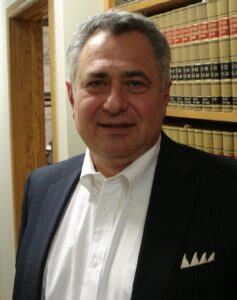According to the Illinois Secretary of State’s Office, in 2019 there were 26,052 DUI arrests in Illinois. This number has decreased slightly from the previous year, when there were 26,649 DUI arrests.
In addition to the number of arrests, there were 309 alcohol-related fatalities in Illinois in 2019, which was an increase from the previous year, when there were 299 alcohol-related fatalities.
It’s worth noting that DUI statistics can vary from year to year, and that driving under the influence can have serious consequences, including injury or death to oneself or others, as well as legal penalties such as fines, license suspension or revocation, and even jail time. It’s important to always prioritize safety when driving and to never get behind the wheel if you’ve been drinking or using drugs.
The consequences of a DUI in Illinois can be severe, including both administrative and criminal penalties. Here are some of the potential consequences:
- Administrative Penalties: If you are arrested for a DUI in Illinois, the Illinois Secretary of State’s Office will automatically suspend your driver’s license, even before any criminal charges are filed. The length of the suspension will depend on a number of factors, including whether this is your first or subsequent offense, your blood alcohol content (BAC), and whether you refused to take a chemical test. A first-time DUI offense with a BAC of 0.08% or higher can result in a license suspension of up to 6 months.
- Criminal Penalties: If you are convicted of a DUI in Illinois, the criminal penalties can include fines, community service, and even jail time. The severity of the penalties will depend on a number of factors, including whether this is your first or subsequent offense, your BAC, and whether there were any aggravating factors, such as causing an accident that resulted in injury or death. A first-time DUI offense in Illinois is typically a Class A misdemeanor, which can result in fines of up to $2,500 and up to 364 days in jail.
- Ignition Interlock Device: In some cases, the court may require that you install an ignition interlock device (IID) in your vehicle. This device requires you to take a breath test before you can start your car, and it will prevent the car from starting if it detects alcohol on your breath.
- DUI School: In addition to the above penalties, if you are convicted of a DUI in Illinois, you will also be required to attend a DUI school. This program is designed to educate you on the dangers of drunk driving and how to avoid it in the future.
It’s important to note that the penalties for a DUI in Illinois can be more severe for repeat offenders or for those whose BAC was particularly high at the time of the arrest. In addition to legal consequences, a DUI conviction can also have serious consequences for your employment, insurance rates, and other areas of your life.
Louis M. Pissios
ATTORNEY AND COUNSELOR AT LAW
across the street from the courthouse
9 South County Street
Waukegan, Illinois 60085-5567
Practicing in Criminal Defense and Personal Injury
TELEPHONE (847) 263-0001
